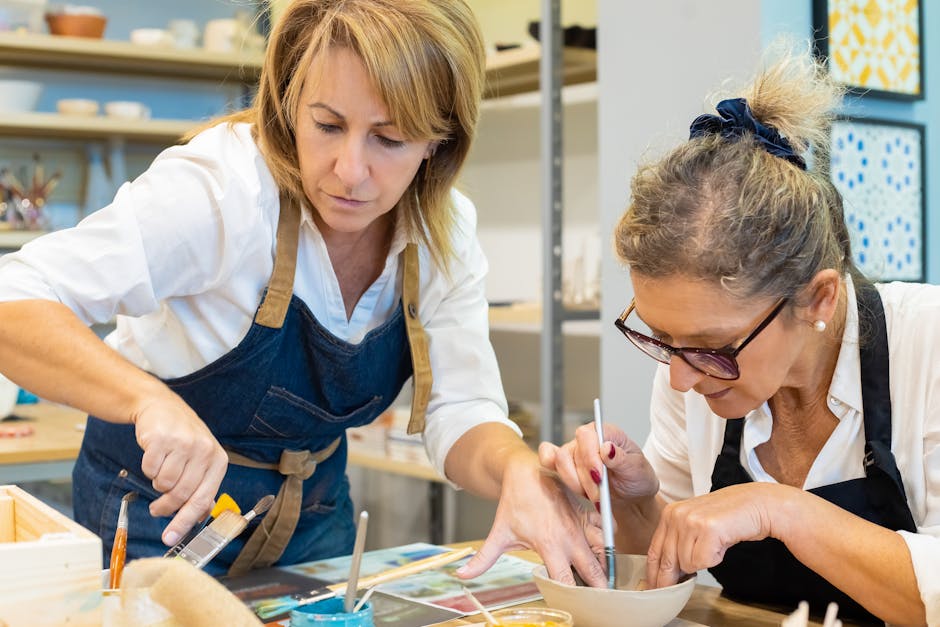The pursuit of hobbies and crafts presents a compelling case study in skill development. While often perceived as leisure activities, many hobbies demand a surprising array of skills, fostering their refinement through dedicated practice and experimentation. This exploration delves into the multifaceted relationship between hobby engagement and skill enhancement, examining various contributing factors and exploring the nuances of this connection.
A primary mechanism through which hobbies enhance skill development lies in the structured practice they provide. Unlike passively consuming entertainment, hobbies necessitate active engagement. Whether it’s the intricate brushstrokes of painting, the precise movements in woodworking, or the strategic thinking in gaming, hobbies demand focused attention and repetitive actions. This deliberate practice, a cornerstone of skill acquisition according to Anders Ericsson’s research on expert performance, allows for the gradual refinement of techniques and the development of muscle memory. The repetitive nature of many hobby activities builds automaticity, enabling smoother, more efficient execution over time.
Moreover, hobbies frequently present opportunities for problem-solving and creative thinking. Encountering challenges a flawed pottery piece, a tangled knitting pattern, a challenging game level forces individuals to analyze the situation, devise solutions, and adapt their techniques. This iterative process of trial and error fosters resilience, adaptability, and a nuanced understanding of the chosen craft. The creative aspect of many hobbies further encourages innovation and experimentation, pushing individuals beyond their comfort zones and expanding their skill repertoire. This is particularly evident in artistic pursuits like painting, sculpture, or writing, where creativity is central to the process.
The social aspect of many hobbies also plays a crucial role in skill development. Joining clubs, attending workshops, or participating in online communities provides access to a wealth of knowledge and experience. Interacting with others who share similar interests facilitates learning through observation, collaboration, and constructive feedback. Sharing techniques, exchanging tips, and receiving critiques from peers can accelerate skill acquisition and provide valuable insights that might otherwise be missed. This collaborative learning environment is particularly beneficial for novices, offering a supportive space to learn from more experienced individuals.
However, the extent to which a hobby enhances skill development depends on several factors. The individual’s commitment and dedication to the hobby are crucial. Consistent practice, even in short bursts, is more effective than sporadic bursts of intense activity. Setting realistic goals, tracking progress, and seeking constructive feedback further enhances the learning process. The inherent complexity of the hobby also matters. Some hobbies, such as knitting or basic photography, might require less intensive skill development compared to others, such as sculpting or advanced coding.
Furthermore, the learning style of the individual influences the effectiveness of hobby-based skill development. Individuals who thrive in structured environments might benefit from formal lessons or tutorials, while others might prefer a more self-directed approach. The availability of resources, including tutorials, tools, and materials, also plays a significant role. Access to high-quality instruction and appropriate equipment can significantly accelerate the learning process.
Beyond the tangible skills acquired, hobbies often contribute to the development of transferable skills applicable to various aspects of life. Problem-solving skills honed during a challenging hobby project can be applied to professional challenges. The meticulous attention to detail required in activities like model building or jewelry making can translate to improved focus and precision in other contexts. The persistence and dedication needed to master a complex hobby can foster resilience and a strong work ethic. Similarly, the communication and teamwork skills developed through participation in hobby groups can enhance interpersonal relationships and professional collaborations.
In conclusion, engaging in hobbies frequently serves as a powerful catalyst for skill development. The structured practice, problem-solving opportunities, social interaction, and the inherent creative elements combine to create a fertile ground for learning and growth. While individual factors such as commitment, learning style, and the complexity of the hobby influence the extent of skill enhancement, the overall evidence strongly suggests that pursuing hobbies contributes meaningfully to the development of both specific and transferable skills, enriching lives both personally and professionally. The key lies in purposeful engagement, consistent effort, and a willingness to embrace the challenges inherent in the pursuit of mastery.
